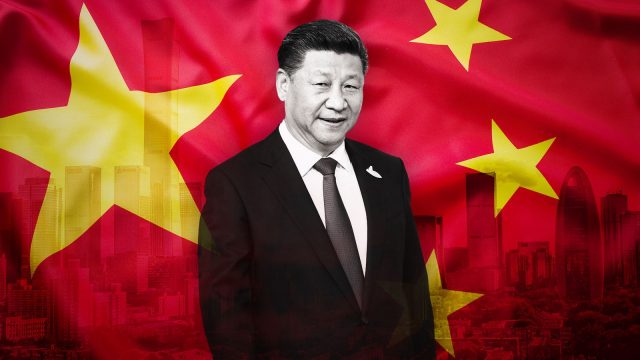MANILA, Philippines — In the geopolitically charged waters of the West Philippine Sea, where territorial disputes simmer and international tensions run high, the Philippines finds itself at the nexus of a complex web of interests. Amidst the intricate geopolitical dance, whispers of a fifth column – a clandestine network operating within the Philippines to advance China’s influence and propaganda – have surfaced, raising concerns about the integrity of the nation’s sovereignty.
The term “fifth column” traces its origins back to the Spanish Civil War, describing a clandestine group operating within a country to undermine its government or military from within. In the context of the Philippines, it suggests a covert presence working in favor of Chinese interests, seeking to sow discord and advance Beijing’s agenda.
Central to China’s strategic calculus is its expansive claims in the South China Sea, a region rich in natural resources and vital sea lanes. The Philippines, like several other Southeast Asian nations, has overlapping claims in these contested waters, leading to periodic flare-ups and diplomatic tensions. China’s assertive actions, including the construction of artificial islands and military installations, have raised alarms not only in the Philippines but also among its regional neighbors and the broader international community.
The fifth column narrative gains traction against the backdrop of increasing Chinese influence in Philippine politics, economics, and society whereas in the sphere of social media–a group of Filipino agents are parroting China’s propaganda. A lot of these Filipino agents has well-established facebook accounts that runs to the thousands of followers, specifically supporters of the previous Duterte administration.
One area where the fifth column’s alleged influence is particularly conspicuous is in the realm of media and information dissemination. Reports of pro-China narratives pervading Philippine media outlets, social media platforms, and even academic circles have fueled suspicions of a concerted effort to shape public opinion in favor of Beijing’s interests. Whether through subtle manipulation or overt propaganda, the narrative of a benevolent China and the portrayal of the Philippines as a willing partner in its regional aspirations find echoes in various channels.
The sea row between China and the Philippines serves as a focal point for the fifth column’s activities, with efforts aimed at downplaying Philippine sovereignty claims, diluting international support for Manila’s position, and fostering discord within Philippine society. By leveraging economic incentives, diplomatic pressure, and information warfare tactics, China seeks to tilt the balance in its favor, eroding resistance and strengthening its foothold in the region.
However, the fifth column narrative is not without its skeptics and detractors. Critics argue that labeling dissenting voices as part of a fifth column serves to stifle legitimate discourse and dissent, undermining freedom of expression and democratic principles. They caution against conflating legitimate advocacy, academic inquiry, or dissent with treasonous activities, emphasizing the importance of robust debate and critical thinking in a democratic society.
Moreover, while acknowledging the challenges posed by external influences, proponents of a more nuanced approach advocate for strengthening democratic institutions, promoting media literacy, and fostering a sense of national unity and resilience. By addressing underlying vulnerabilities and empowering citizens to discern fact from fiction, the Philippines can navigate the complexities of geopolitical competition without compromising its sovereignty or democratic values.
In conclusion, the specter of a fifth column looms large in the Philippines’ discourse on national security and sovereignty, particularly in the context of the South China Sea dispute. While concerns about external influences are legitimate, it is essential to approach the issue with a clear-eyed assessment of the challenges and opportunities at hand. By upholding democratic principles, fostering national unity, and engaging in informed dialogue, the Philippines can assert its sovereignty and navigate the turbulent waters of geopolitical competition with confidence and resilience.
[READ] Fake Chinese Map that depicts the 9-dash line


